As industries evolve, staying ahead requires understanding and leveraging emerging trends. This blog post explores some of the most promising innovations reshaping sectors like healthcare, energy, logistics, and more. Discover how these trends can drive efficiency, sustainability, and growth in your organization.
1. Revolutionizing Energy with Renewable Technologies and Smart Grids ⚡
Renewable Energy Integration 🌍: The energy sector is rapidly shifting towards renewable sources like solar, wind, and hydroelectric power. Innovations in energy storage and grid management are making renewable energy more reliable and accessible. Companies adopting these technologies can reduce their carbon footprint and energy costs. For example, advancements in battery storage have enabled more efficient energy management, reducing reliance on fossil fuels.
Smart Grids for Enhanced Efficiency 🌐: Smart grids use digital technology to monitor and manage energy flow, improving efficiency and reliability. These grids allow for better integration of renewable energy sources and more responsive demand management. As a result, energy companies can reduce waste and improve service reliability.
Electric Vehicles (EVs) and Infrastructure 🚗: The rise of electric vehicles is driving innovation in energy infrastructure, with increased investment in EV charging networks and grid upgrades. Organizations involved in EV infrastructure are playing a critical role in the transition to sustainable transportation.
2. Transforming Healthcare with Precision Medicine and AI-Driven Insights 🏥
Precision Medicine 🌡️: Precision medicine tailors treatment plans based on individual genetic profiles, leading to more effective therapies and better patient outcomes. Advances in genomics and big data analytics are enabling healthcare providers to develop personalized treatment strategies. This approach is particularly beneficial in oncology, where targeted therapies can significantly improve survival rates.
AI in Drug Discovery 💊: AI is revolutionizing drug discovery by analyzing vast datasets to identify potential drug candidates faster and more accurately. This innovation shortens the development timeline and reduces costs, accelerating the availability of new treatments. Biopharmaceutical companies leveraging AI are leading the way in bringing innovative therapies to market.
Telehealth Expansion 🌐: Telehealth continues to expand, offering patients remote access to healthcare services. Innovations in virtual care platforms and remote monitoring are improving healthcare accessibility, particularly in rural and underserved areas.
3. Enhancing Logistics and Supply Chain Management with AI and Automation 🚚
AI-Driven Supply Chain Optimization 🧠: AI is transforming supply chain management by optimizing routes, predicting demand, and managing inventory more effectively. Companies using AI in their supply chains report a 15-20% reduction in costs and a significant improvement in efficiency.
Robotics in Warehousing and Fulfillment 🤖: Automation and robotics are revolutionizing warehousing and fulfillment processes, reducing labor costs, and increasing accuracy. Autonomous mobile robots (AMRs) and automated storage and retrieval systems (ASRS) are becoming standard in modern warehouses.
Blockchain for Transparency and Security 🔗: Blockchain technology is enhancing supply chain transparency and security by providing a tamper-proof record of transactions. This innovation is particularly valuable in industries like food and pharmaceuticals, where traceability is critical.
4. Advancing Construction with Sustainable Practices and Smart Technology 🏗️
Green Building Technologies 🌱: The construction industry is increasingly focused on sustainability, with green building technologies reducing energy consumption and environmental impact. Innovations such as energy-efficient materials, passive solar design, and green roofs are becoming standard in new construction projects.
Building Information Modeling (BIM) 🏢: BIM is revolutionizing the way construction projects are planned and executed. This digital representation of physical and functional characteristics enables better collaboration, reduces errors, and improves project outcomes. Construction companies using BIM report a 25-30% improvement in project delivery times.
Modular Construction 🛠️: Modular construction techniques, where buildings are assembled from prefabricated sections, offer faster, more cost-effective, and sustainable alternatives to traditional methods. This approach is gaining traction, particularly in residential and commercial real estate.
5. Transforming Agriculture with Smart Farming and Sustainable Practices 🌾
Precision Agriculture 🚜: Precision agriculture uses GPS, IoT, and data analytics to optimize farming practices, reduce waste, and increase yields. Farmers using precision agriculture report a 20-30% increase in crop yields and a significant reduction in resource use.
Sustainable Farming Practices 🌍: There is a growing emphasis on sustainable farming practices, including organic farming, regenerative agriculture, and water conservation techniques. These practices not only improve environmental outcomes but also enhance long-term productivity and profitability.
AgTech Innovations 🌾: Advances in agricultural technology (AgTech), such as drones for crop monitoring and AI-driven pest management, are transforming the industry. These innovations help farmers make data-driven decisions, improving efficiency and reducing environmental impact.
Conclusion: Embrace Emerging Trends to Lead in Your Industry Staying ahead in today’s fast-paced world requires understanding and leveraging the latest trends. Whether it’s renewable energy, precision medicine, AI-driven logistics, sustainable construction, or smart farming, these innovations offer exciting opportunities to enhance efficiency, sustainability, and growth in your industry.
Call to Action: Are you ready to embrace these emerging trends and transform your organization? Contact Kaurex Ltd today to learn how our consultancy services can help you implement cutting-edge solutions tailored to your industry’s unique challenges and opportunities. 🌟
